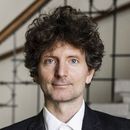The Brain Dynamics Graduate School is a collaborative research network with an interdisciplinary approach to studying brain function and dysfunction, from single synapses to cognitive mechanisms. The school brings together basic and applied researchers with complementary interests and expertise in all modern specializations of neuroscience, such as neurophysiology, neuroanatomy, computational neuroscience and cognitive science.
Our aim
We focus on maintaining an excellent interdisciplinary training environment for doctoral students in the neurosciences. Each doctoral candidate is guided by three advisors in the form of the Thesis Advisory Committee, providing invaluable insights from three independent points of view and best possible setting for successful doctoral theses. Our structured training program is in accordance with the University Leipzig's Personnel Development Concept, striving towards best possible standards regarding quality management, equal opportunities, and the compatibility of academic career and family. In accordance with the Leipzig Researcher Development Program, the Graduate School supports postdocs along their way to academic independence by offering a financial support for third-party funding proposals, or by the supervision of doctoral candidates as a member of the thesis advisory committee. This way, through the comprehensive support of young scientists at all stages of their scientific careers, Brain Dynamics makes an important contribution to the personnel development at the Leipzig University.
School structure
The Graduate School is incorporated in the research profile area Brain Dynamics, which is part of the strategic research field Sustainable Principles for Life and Health at the Leipzig University. Founding institutions of the Graduate School are the Faculty of Life Sciences and the Faculty of Medicine at the University Leipzig. Faculties of Veterinary Medicine, Sport Science, Mathematics and Computer Science, Physics and Earth Sciences, and Education, as well as Max Planck Institutes for Human Cognitive and Brain Sciences (MPI CBS), Evolutionary Anthropology (MPI EVA), and Mathematics in the Sciences (MPI MIS), Helmholtz Institute for Metabolic, Obesity and Vascular Research (HI-MAG) and Helmholtz Centre for Environmental Research (UFZ) are also participating in the program.
The Graduate School is run by the Brain Dynamics Board, consisting of the Speaker, Vice-Speaker, one Principal Investigator from each of the founding faculties, two postdocs and two doctoral students. The Board members are elected at the annual general assembly of the Graduate School that takes place during the Brain Dynamics Graduate School Scientific Day.
Brain Dynamics Board
Board members
We offer
- A structured inter-disciplinary graduate program covering the full spectrum of neuroscientific fields of research and application.
- Projects including model systems ranging from fruit flies to humans, with the aim to understand information processing in the brain and improve treatment of neurobiological disorders.
- Structured supervision and mentoring of each PhD student by several neuroscientists in the form of a Thesis Advisory Committee, to ensure the best possible training for successful doctoral theses.
- Educational workshops and courses tailored precisely to neuroscientists.
- An annual Scientific Day with lectures and poster presentations to share results and ideas and make connections across all fields of neuroscience.
- Funding for interdisciplinary projects for doctoral researchers and postdocs.
-
An opportunity for principal investigators to provide focused and structured support to young neuroscientists in all phases of their scientific careers.



